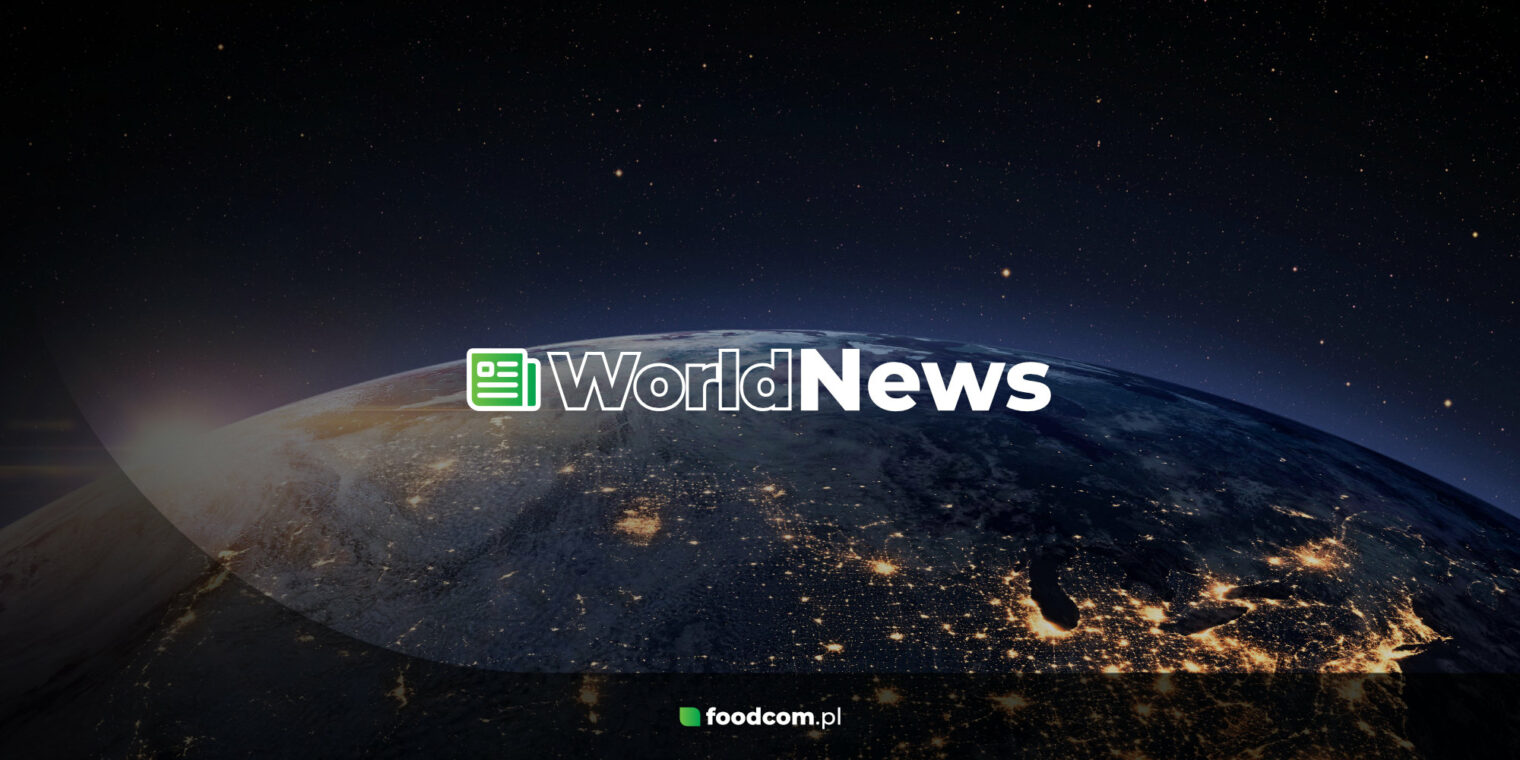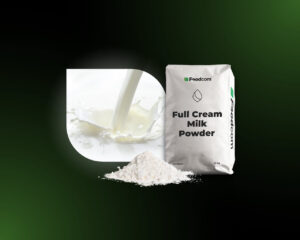Resumen
Índice
Explore selected leading news from global industries. Glance at current issues in the plant-based market featuring ongoing shortages of products. Find out what can be expected in the animal feed business, along with the continuous effects of the global 2020 lockdown. Continue reading our article to find out about the details, and other crucial headlines
New Zealand milk production is expected to decline in 2022 due to continued drought in key producing regions, but also other ongoing issues, like high feed prices and labor shortages. Milk production in this year’s first quarter was six percent lower than the year earlier. It ultimately reached its lowest first-quarter level since 2013, a decrease that occurred despite record-beating dairy prices. Correspondingly to lower milk supplies, New Zealand FCMP (WMP) exports are conjured to decline the most among the major processed dairy products. On the other hand, while the quantity of cheese exports is expected to disimprove, both skimmed milk powder and butter sales are to increase. These should not reach exceedingly high levels, though.
Current New Zealand 2022 projections state that milk production will fall to statistics similar to 2017, which is also not an optimistic figure for the local industry. The fact that milk manufacturing was at a record high in the Q1 of 2021 may also explain the magnitude we identify now.
The U.S. Federal Motor Carrier Safety Administration (FMCSA) announced on Monday that it is issuing a national emergency declaration to suspend the hours-of-service requirements for drivers of commercial vehicles transporting baby formula ingredients and packaging. The order followed a product recall by the region’s leading baby formula manufacturer’s facility. The investigation resulted in one of the largest shortages of infant formula in recent history.
A separate declaration first issued in March 2020 covering COVID-19 pandemic transportation issues has been repeatedly extended and already covers baby formula. That order is currently set to expire May 31.
A US Government’s act was enforced to improve the critical situation, and later on Sunday (22/05) a cargo plane from Europe landed in one of major United States’ cities with the first shipment of infant formula.
Additionally, Danone representatives have disclosed doubled shipments to the United States of certain formulas. Another top producer stated it is working with the U.S. Administration on ways to increase baby formula supply, including an approval of shipments of the product from Mexico.
Wheat prices jumped internationally on Monday due to an export ban enforced by India. The government stated it must “safeguard domestic supplies amid heat waves that threaten crop yields”. The ban has trapped almost two million tonnes of grain at Indian ports, leaving the whole industry possibly facing considerable losses. The government threatened to continue tightening global wheat supplies as they are strained by the war in Ukraine. Wheat futures in the U.S. and Europe climbed nearly six percent, with the global benchmark in Chicago earlier reaching its daily limit. On top of that, price rates in Paris are approaching all-time highs.
Uncertainty in the feed industry is an overriding theme. The global supply chain concerns caused by the ongoing political issues and effects of the coronavirus pandemic are driving many challenges. Including high costs of production to transportation, a difficult trade environment and labor shortages, other pressures involve the drive to reduce the use of antibiotics and zinc oxide, along with an increased biosecurity.
Pork producers throughout the Eastern hemisphere have been struggling to contain and eradicate African swine fever (ASF) virus in their domestic herds with limited success. The deadly and highly infectious disease has not yet reached North America, yet experts fear its outbreak due to Puerto Rico and the Dominican Republic having the status of affected countries. Experts state that it is “not a matter of if, but when”. And so, in order to prevent the spread of ASF in the U.S., the United Animal Health prepared a safety questionnaire for American farmers to dispute any feasibility of a spread.
Experts state that the Chinese government’s zero-covid policies are to impact freight costs and boost global inflation. This is one among the rest of the negative factors that are driving the economy out of control. Container rates and vessel availability can also have an impact on the overall cost of trading low-margin-per-kg, commoditized feed additive products, often imported in bulk quantities. Shipping routes from China to Europe, for instance, are frequently used for imports of Chinese-manufactured lysine, threonine, and other feed additives into Europe as such products have a relatively low price per kg. Shipments of these feed additives can take up to a couple of months.
Dairy production in New Zealand said to drop lowest in almost a decade.
New Zealand milk production is expected to decline in 2022 due to continued drought in key producing regions, but also other ongoing issues, like high feed prices and labor shortages. Milk production in this year’s first quarter was six percent lower than the year earlier. It ultimately reached its lowest first-quarter level since 2013, a decrease that occurred despite record-beating dairy prices. Correspondingly to lower milk supplies, New Zealand FCMP (WMP) exports are conjured to decline the most among the major processed dairy products. On the other hand, while the quantity of cheese exports is expected to disimprove, both skimmed milk powder and butter sales are to increase. These should not reach exceedingly high levels, though.
Current New Zealand 2022 projections state that milk production will fall to statistics similar to 2017, which is also not an optimistic figure for the local industry. The fact that milk manufacturing was at a record high in the Q1 of 2021 may also explain the magnitude we identify now.
Possible ease in the USA regarding infant milk shortage
The U.S. Federal Motor Carrier Safety Administration (FMCSA) announced on Monday that it is issuing a national emergency declaration to suspend the hours-of-service requirements for drivers of commercial vehicles transporting baby formula ingredients and packaging. The order followed a product recall by the region’s leading baby formula manufacturer’s facility. The investigation resulted in one of the largest shortages of infant formula in recent history.
A separate declaration first issued in March 2020 covering COVID-19 pandemic transportation issues has been repeatedly extended and already covers baby formula. That order is currently set to expire May 31.
A US Government’s act was enforced to improve the critical situation, and later on Sunday (22/05) a cargo plane from Europe landed in one of major United States’ cities with the first shipment of infant formula.
Additionally, Danone representatives have disclosed doubled shipments to the United States of certain formulas. Another top producer stated it is working with the U.S. Administration on ways to increase baby formula supply, including an approval of shipments of the product from Mexico.
Further problems regarding supplies of wheat
Wheat prices jumped internationally on Monday due to an export ban enforced by India. The government stated it must “safeguard domestic supplies amid heat waves that threaten crop yields”. The ban has trapped almost two million tonnes of grain at Indian ports, leaving the whole industry possibly facing considerable losses. The government threatened to continue tightening global wheat supplies as they are strained by the war in Ukraine. Wheat futures in the U.S. and Europe climbed nearly six percent, with the global benchmark in Chicago earlier reaching its daily limit. On top of that, price rates in Paris are approaching all-time highs.
How to prevent the spread of swine fever
Uncertainty in the feed industry is an overriding theme. The global supply chain concerns caused by the ongoing political issues and effects of the coronavirus pandemic are driving many challenges. Including high costs of production to transportation, a difficult trade environment and labor shortages, other pressures involve the drive to reduce the use of antibiotics and zinc oxide, along with an increased biosecurity.
Pork producers throughout the Eastern hemisphere have been struggling to contain and eradicate African swine fever (ASF) virus in their domestic herds with limited success. The deadly and highly infectious disease has not yet reached North America, yet experts fear its outbreak due to Puerto Rico and the Dominican Republic having the status of affected countries. Experts state that it is “not a matter of if, but when”. And so, in order to prevent the spread of ASF in the U.S., the United Animal Health prepared a safety questionnaire for American farmers to dispute any feasibility of a spread.
Delays in amino acids shipments
Experts state that the Chinese government’s zero-covid policies are to impact freight costs and boost global inflation. This is one among the rest of the negative factors that are driving the economy out of control. Container rates and vessel availability can also have an impact on the overall cost of trading low-margin-per-kg, commoditized feed additive products, often imported in bulk quantities. Shipping routes from China to Europe, for instance, are frequently used for imports of Chinese-manufactured lysine, threonine, and other feed additives into Europe as such products have a relatively low price per kg. Shipments of these feed additives can take up to a couple of months.
Categorías:








